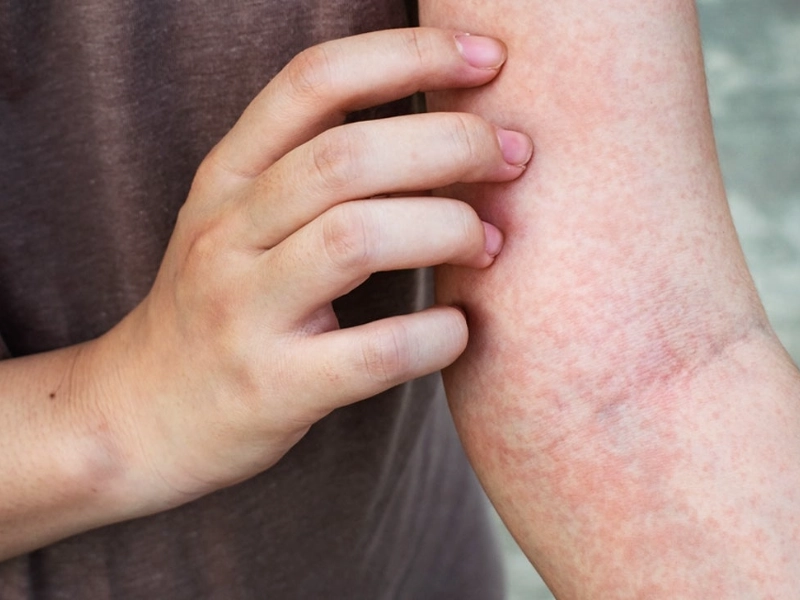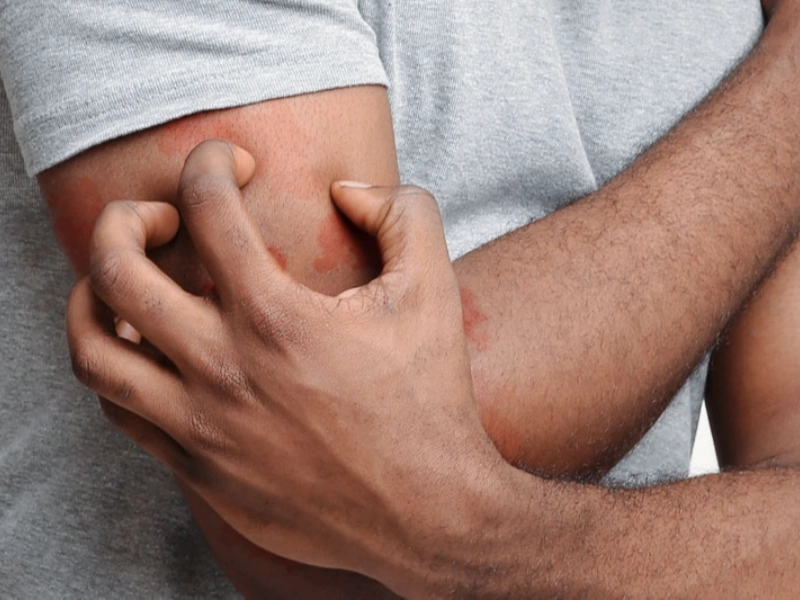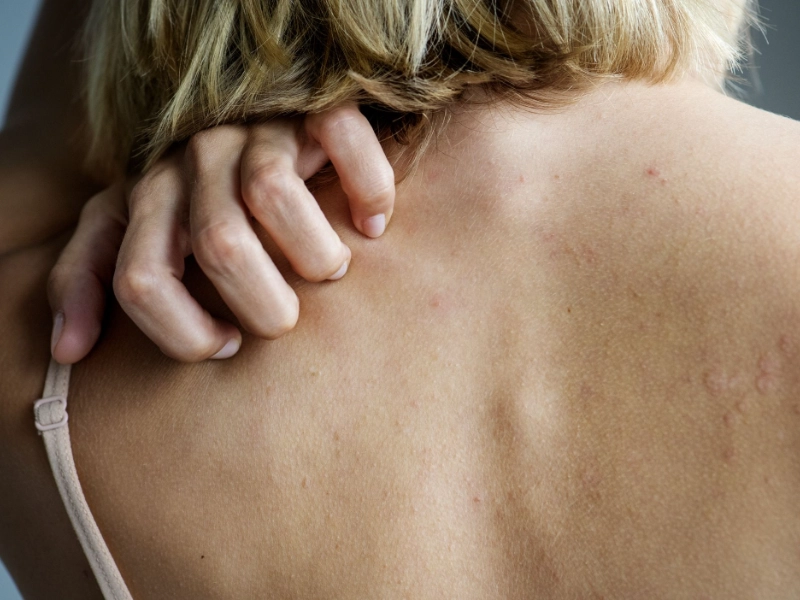What Allergy Is Responsible for Itchy Skin?
advertisement
Food Allergies

advertisement
Food allergies occur when your immune system mistakenly recognizes certain proteins as harmful and reacts by releasing chemicals into the bloodstream that cause allergy symptoms such as itching skin (pruritis).
Food allergies are unfortunately quite common, affecting around 8% of children under 5 and 4% of adults. Unfortunately, they can also be serious and even life-threatening for some individuals.
If you think that you might have a food allergy, consult your healthcare provider for testing and treatment. They can learn about any past exposures to allergens and perform tests to pinpoint which foods cause allergic symptoms. They may also use the radioallergosorbent test (RAST), which measures levels of allergen-specific antibodies in blood.
Insect Allergies

Itchy skin is a common symptom of insect allergies. Stinging insects such as bees, wasps and ants can cause allergic reactions that range in severity from localized irritation to life-threatening complications.
People stung or bitten by insects often experience pain, redness and itching at the site of contact. This is a normal response to the irritating enzymes and chemicals present in an insect's venom.
If the itching, swelling and other symptoms persist beyond 24 hours or are located on a different part of your body from where you were stung, seek medical help for an allergy test. A skin prick or blood test can determine which insect stings you are allergic to and how severe your reaction will be.
Drug Allergies

Drug rashes typically develop within minutes after taking the medicine or they may take days or weeks to appear. Symptoms include itching, redness, blisters, and in some cases swelling around the throat or eyes.
Itchy skin can be caused by an allergy to a certain medicine or other drugs you take. Your doctor can help prevent an allergic reaction by administering drug desensitization therapy, which helps calm down any itchy sensations in the affected area.
The initial step is to inform your doctor of all medications you are taking. They will ask about your symptoms and perform a physical exam, followed by testing for allergies on your skin.
Chemical Allergies

When someone is allergic to a chemical, their immune system reacts by producing antibodies. These can attach themselves to proteins on the skin or in the lungs and initiate an allergic response.
Chemical allergies can cause itchy skin, a rash and other symptoms. They could also be indicative of anaphylaxis - a life-threatening allergic reaction requiring immediate medical intervention.
You May Like
advertisement







